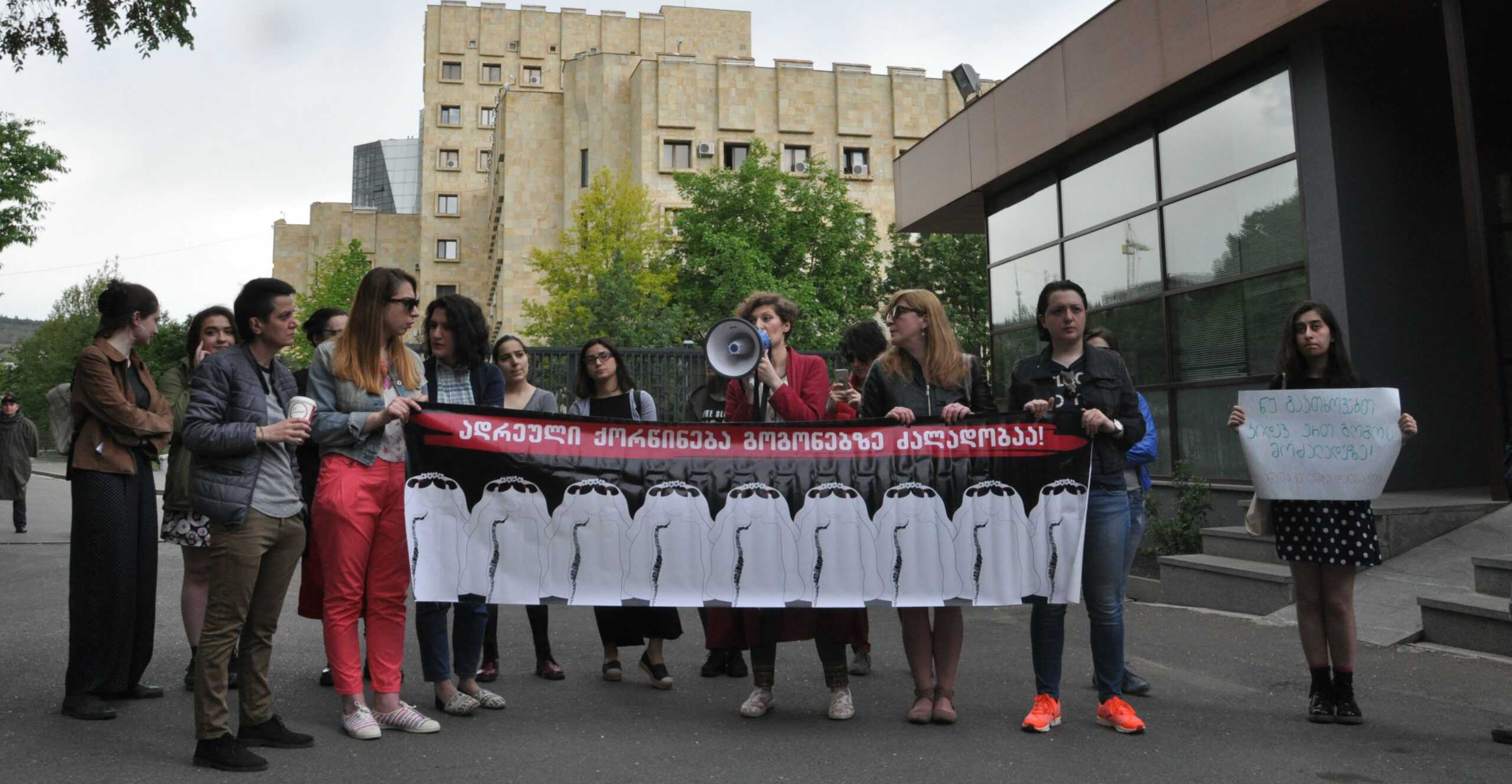

 Child marriages are commonplace in Georgia’s Azerbaijani communities. Despite tough new laws prohibiting the practice, young girls continue to have their right to education denied to them and their futures decided between their families and potential suitors.
Child marriages are commonplace in Georgia’s Azerbaijani communities. Despite tough new laws prohibiting the practice, young girls continue to have their right to education denied to them and their futures decided between their families and potential suitors.
It was more than five years ago that her father unexpectedly came to school to pick up Aisha, 15, in the middle of a lesson. Her future husband’s family awaited her at home. Aisha didn’t know her future husband or his family.
‘I was told that they came to ask for my permission to marry me off, and were asking whether or not I agreed to this. I replied that it was for my parents to decide. My father thought that my answer was positive, but in reality I wanted to continue my education’, Aisha tells Radio Marneuli.
She says that her parents didn’t know her future family either, but that the relatives gave good references. The parents gave their approval and forced her to marry the man.
Aisha was engaged for two years while the man was living in Russia. The couple contacted each other by phone, but seldom. Two years later, they were married and departed for Russia.
‘He used to abuse me every day in Russia. He was looking for a reason for conflict every day. Three months later I learned that my husband had another wife and child. Every day was unbearable living with him. Soon my visa expired and I came back to Georgia’, Aisha says.
When Aisha came back, she learned that she was pregnant, but she didn’t want to go back to her husband. Her parents felt guilty and so they let her decide; she could marry someone else or continue her education. She went to college to study journalism.
‘Very often I feel judgement from people, but I don’t pay attention, because my parents support me and this makes me stronger’, she remarks.
This year, Aisha took her son to school, because she believes education is crucial.
A lack of state intervention
On 1 January, it became illegal to marry minors aged from 16–18 years old. In addition, according to Georgian law, sexual relations with a minor aged under 16 is punishable by 7–9 years in jail.
Giorgi Kakulia, Chief Prosecutor for Marneuli Municipality, tells Radio Marneuli that there are 25,000 children in the municipality, and that the Prosecutor’s Office organises regular meetings with schoolchildren to raise awareness about early and forced marriage, mostly in the ninth to twelfth grades.
He says that there is a problem in that the authorities only learn about illegal marriages from maternity houses, once a girl is already giving birth, and that there are no mechanisms in place to prevent the marriages from the beginning.
However, Nona Samkharadze, a specialist in gender issues, thinks that there are ways to prevent early marriages in Azerbaijani communities before couples reach maternity houses.
‘While in Georgian communities, girls, even udnerage girls, sometimes decide to marry on thier own. In Azerbaijani communities, the process is completely different. First the girl is engaged. Then the families visit each other, news spreads all over the village and it is possible to intervene’, she says, adding that one solution would be for the Interior Ministry and Health Ministry to issue a common decree forcing teachers to notify the police when girls stop attending classes. Then they could investigate the reasons and the Health Ministry could send someone to the girl’s family and find out why she has given up school, and possibly prevent a marriage.
Samkharadze thinks that the problem is so acute in the Azerbaijani community because of the language barrier, which leads to integration problems, and isolation.
She says that when it finally comes to the maternity house, the authorities usually decide not to leave the 14–15-year-old girls without their husband or father, and the men are released with fine or community work, instead of the proscribed 7–9 years in jail.
‘This is proof that the government fails to protect the rights of children’, Samkharadze says.
The normalisation of child marriage
16-year-old Tekla posted on Facebook about her marriage. Her husband is 24. She told Radio Marneuli that she feels really happy. The couple plans to spend their honeymoon in Paris. She first agreed to give a radio interview, but then changed her mind, afraid that her husband might face some problems.
Radio Marneuli spoke with her father, who said that he was aware that the couple were in love for five years, and he wasn’t against their love.
‘They were after her, planning to bridenap her, and I thought it was better to let her marry rather than allow them to abuse her. So he came here, we talked, and he took her’, he said, adding that the husband’s family had agreed to provide her with an education in the future.
Samkharadze explains that parents usually prepare their daughters for an early marriage from a young age, describing to them a bright future. This is why very few girls protest, and some even look forward to getting married.
‘Now that the law is strict, parents try to hide the fact that their daughters are engaged’.
According to the latest data from the Ministry of Justice, 611 underage marriages were registered in 2015, with only 17 of them underage boys. In 16 cases both the girl and boy were underage. In many cases marriages aren’t registered at all.








